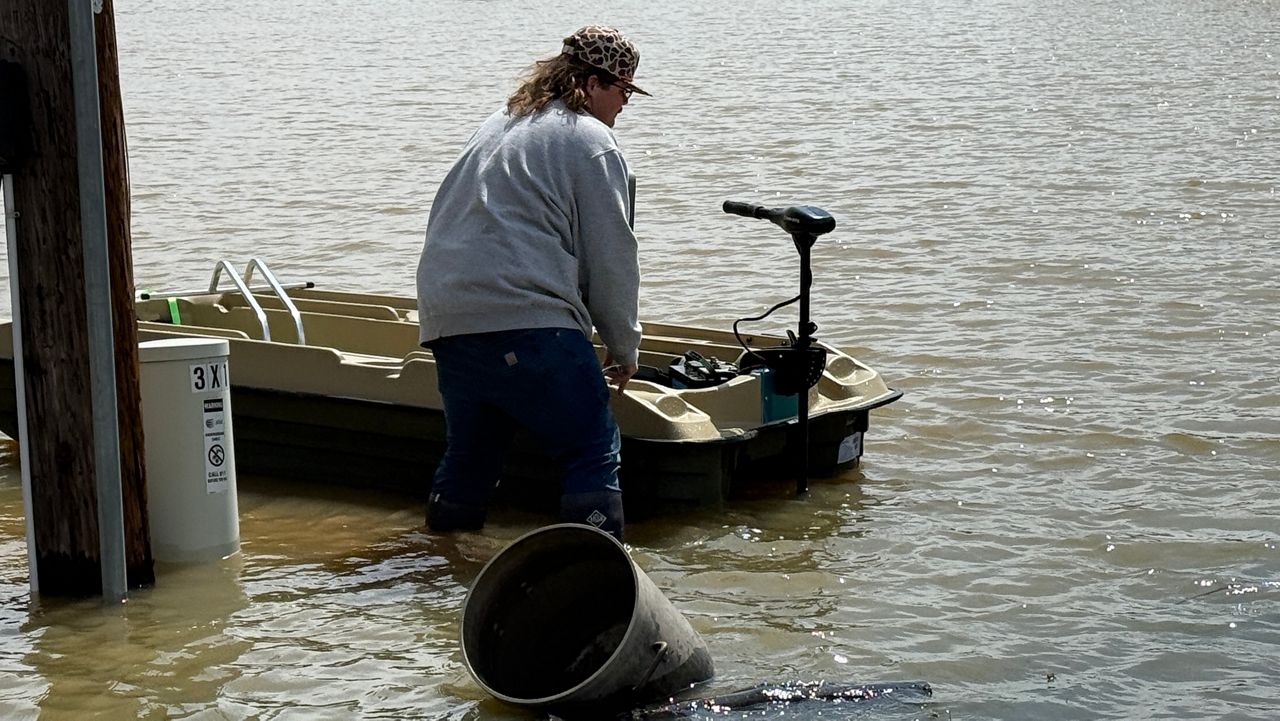BELLEVUE, Ky. – The proposed Crisis Aversion and Right Retention (CARR) bill would create a process in which Kentuckians experiencing mental health crises would have their firearms temporarily taken away.
The CARR bill has bipartisan support and is expected to be filed in the next legislative session. One of the bill’s vocal supporters is no stranger to tragedy in her life.
As the daughter of a retired law enforcement officer and expert marksman, Kerry Conley has grown up around guns. For most of her young life, all she saw was the safe, responsible handling of those guns. But around when she was 18, a series of events would begin to influence how she thought about firearms.
The first was one of her best friends, Brett, taking his own life using a gun hours after they had returned from a trip.
“He seemed off on spring break, but [with] mental health back then, there was such a stigma behind it,” Conley said.
Years later came the second tragedy. Amy, the sister of Conley's close friend, Meredith, was confronted by an ex-boyfriend while Meredith was picking up her kids from Amy.
“He pulled out a gun and started shooting; she died in Meredith's arms, and he turned around and killed himself with that gun,” Conley said. “Obviously, he was mentally ill.
"If they would have done a universal background check, you never know, but it should not have happened. Amy was just truly one of the most positive, wonderful people, and I was lucky to get to know her through Meredith.”
Conley took to social media to point out the differences in difficulty between obtaining a driver's license and a gun.
“I literally wrote, I just hope to God that I never have to know a kid killed in a mass shooting," she said. "And here we are: 2023. I don’t want this to continue to be something that people think, this would never happen to me.”
Conley moved back to northern Kentucky about a year and a half ago. She had lived in Nashville before that for close to 20 years.
She had a handful of friends whose kids were at the Covenant School March 27, 2023, when a shooter killed three children and three adults.
“I just started texting them all, and I gradually would get 'I'm OK; I'm OK,'" Conley said. And I never heard back from Katy [Dieckhaus]. It still just rocks your core."
Katy's daughter, Evelyn Dieckhaus, was one victim. She and Conley were close.
Conley said she remembered a time she was watching Evelyn and told her they could do anything she wanted.
“What she picked as a 7-year old was to go to the store and buy toys and treats for the dogs at the pound, and that’s what we did,” Conley said.
Inspired by Evelyn, Conley left her corporate job to start teaching. She was also inspired to make change and got involved in causes such as Tennessee Voices for Safer Tennessee and Whitney Strong, a group that has played a major role in shaping the CARR bill.
“If somebody is going through a mental health crisis, no one should be purchasing AR-15s," Conley said. "Nobody should have a gun in their possession at that time until they are able to get help.
“If you are a responsible gun owner, none of these things touch you. This is truly just taking responsibility and doing all we can without taking people’s guns, and it’s just hard not to think a lot of these things could’ve been prevented if it wasn’t so easy.”
The proposed bill has bipartisan support. However, Conley said she sees it as a health crisis, not a political issue.
Through all the tragedy, she’s found purpose.
“I’m not going anywhere until something happens,” she said. “[Evelyn] inspired me; there was just this light in her. And it’s not gone. It’s still there.”
State lawmakers will begin the 2024 Legislative Session Jan. 2. For the CARR bill to pass, it will face a Republican supermajority in both chambers.










